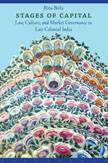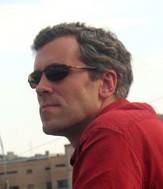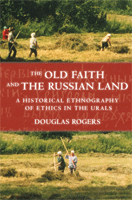You live near a major university and a community college. There are smart people that come here every week to talk to the general public about interesting topics. Perhaps you were not aware of this fact, or were overwhelmed by the sheer number of opportunities for possible enlightenment. If that’s the case, Smile Politely understands and is here to help. Here are several events going on in town this week. Check out one or more of them if you have time. Get your learn on, as they say, and join the cognoscenti.
If you have a community event, speaker, or film event that you’d like to see featured on Listen Up!, send the event information to joelgillespie [at] smilepolitely [dot] com by Friday the week prior to the event. Listen Up! runs on Mondays.
 WHAT: Author’s Roundtable with Ritu Birla
WHAT: Author’s Roundtable with Ritu Birla
WHEN: Monday, November 16 @ 8 p.m.
WHERE: Levis Music Room
Author’s Roundtable with Ritu Birla, Associate Professor, History, University of Toronto, author of Stages of Capital: Law, Culture and Market Governance in Late Colonial India (Duke, 2009)
Dr. Birla was kind enough to answer a few questions by email:
Smile Politely: What do you consider to be the “late Colonial” period? Was there a particular event that is a good line of demarcation?
Ritu Birla: The “late colonial period” is a broad term that for British India refers to the period after the great rebellion of 1857, spanning the height of the British Imperial Raj in the late nineteenth century, through to independence in 1947. In this period, of course, we also find the rise of Indian anti-colonial nationalism.
Smile Politely: This seems like it would be a tremendously complex subject. How did you determine what the scope of the book would be? Were there topics you hoped to investigate more closely that you had to leave out?
Ritu Birla: This project is the study of what I call market governance, and it is necessarily interdisciplinary project. When I began researching a decade and a half ago, I was interested in the global history of capitalism (of which colonialism is a central feature) as well as the cultural transformations under colonialism. But I found that scholars who studied political economy and economic history were not in conversation with scholars who studied the politics of culture. I wanted to put these bodies of work into conversation to ask new kinds of questions about the relationship between economic practice and discourses on culture. In discussions about development in the non-western world, it is standard to ask whether “culture” enables or restricts economic development. The presupposition here is that “culture” and “economy” are distinct spheres, but of course they never are. I am interested in how, historically, they were produced as distinct spheres. Colonial history has much to tell us about this. To do so, I turned to an archive which had never been examined, law and jurisprudence on market practice. I also turned to a key group of Indian caste-based capitalists to show how they negotiated colonial governance and its new categories of economic vs. cultural practice, a distinction that ultimately enabled them to reproduce their dominance and forms of exploitation.
Smile Politely: Would a non-academic be interested in your presentation? Why or why not?
Ritu Birla: Certainly, I am mapping a new of doing history, and that’s an academic project, but I do hope that non-academics would be interested in many of the stories I tell in the book. First, the story of a thing called “the market” or “the economy.” We all wake up every day, listen to the stock market report, and take note of the health of “the economy.” What is this thing? The laws I examine show how this thing called “the economy” becomes part of our modern understanding of the world. Second, a central feature of the discussion about the recession and economic ethics today is the relationship between law and economy: why weren’t there any legal regulations for credit-default swaps, for the speculative spiral launched by derivatives, for regulating banks’ sub-prime loans? These questions are at the heart of the story I’m telling–a story that is at the heart of the history of the modern financial system, for it is in the 19th century, under colonialism, that finance capital first globalizes. In late 19th century India, fraudulent companies were floated in a frenzy, especially after the United States civil war, which prompted a cotton boom in western India. The stories I tell about the Indian companies act, and how companies legislation addressed these frauds, sheds light on the legal questions that states grappled with to deal with defrauding of shareholders. The story I tell about how the British regulated indigenous forms of futures trading expose how modernizing legal reformers grappled with how to distinguish futures trading from gambling.
WHAT: “Indicators of Arsenic in Groundwater,” by Tom Holm, Center for Groundwater Science, Illinois State Water Survey
WHEN: Tuesday, November 17 @ noon
WHERE: Illinois Natural Resources Building (Illinois State Geological Survey), Room 101 (SE corner), 615 E. Peabody
This one should be interesting to anyone with a well.
 WHAT: Sustainability Seminar series – “Railroad Transportation Energy Efficiency,” by Dr. Chris Barkan, Professor and Director – Railroad Engineering Program, UIUC
WHAT: Sustainability Seminar series – “Railroad Transportation Energy Efficiency,” by Dr. Chris Barkan, Professor and Director – Railroad Engineering Program, UIUC
WHEN: Wednesday, November 18 @ 12 noon
WHERE: llinois Sustainable Technology Center, One E. Hazelwood Dr., Champaign
Dr. Barkan answered a couple of questions by email:
Smile Politely: I hear the usual “railroad cars haul a ton of freight x miles on a gallon of diesel fuel” ad on NPR quite often. By what factor is rail transport more efficient that truck transport? Will that be a central theme to your presentation?
Chris Barkan: The latest statistics on this are that the overall average for the major US RRs is 457 ton-miles per gallon of diesel fuel. The exact figure will vary, depending on the type of freight being transported and other specific factors regarding the origin, destination and the particular route taken.
Smile Politely: Would a non-academic be interested in your presentation? Why or why not?
Chris Barkan: Yes, I think so. I plan to begin the talk by considering the elementary physics for why rail is so efficient and then discuss some recent research we are doing monitoring and improving railroad intermodal freight energy efficiency. I intend to present this at a level that an intelligent layperson can understand.
 WHAT: New Directions Series: “The Old Faith and the Russian Land: Recombinant Ethics in the Urals,” by Douglas Rogers, Assistant Professor of Anthropology at Yale University
WHAT: New Directions Series: “The Old Faith and the Russian Land: Recombinant Ethics in the Urals,” by Douglas Rogers, Assistant Professor of Anthropology at Yale University
WHEN: Thursday, November 19 @ 4 p.m.
WHERE: 101 International Studies Building 910 S. Fifth Street, Champaign
Dr. Rogers answered some questions about his book of the same title as the seminar.
Smile Politely: How did you become interested in the machinations of post-Socialist societies, and the residents of Sepych in particular?
 Doug Rogers: I started learning Russian in high school, kept it up in college, and then studied abroad my junior year. I met some Russian scholars who studied this part of Russia, went on a trip with them the summer after my junior year, and, well, then spent the next 15 years writing about this place. The book I just finished is really the final revision of my senior thesis!
Doug Rogers: I started learning Russian in high school, kept it up in college, and then studied abroad my junior year. I met some Russian scholars who studied this part of Russia, went on a trip with them the summer after my junior year, and, well, then spent the next 15 years writing about this place. The book I just finished is really the final revision of my senior thesis!
Smile Politely: How much time have you spent in that part of the world? Do you believe that residents of Sepych are better off now than during Soviet rule?
Doug Rogers: I have spent a total of around 3 and a half years living in Russia, a year of that in this village that I’ll be talking about next week. It’s hard to say about the second part — so many things have changed — better for some, worse for others — that I’d hesitate to answer this in a yes or no fashion. In general, the post-Soviet period has not been kind to the Russian countryside.
Smile Politely: Would a non-academic be interested in your presentation? Why or why not?
Doug Rogers: Perhaps — there are some good stories about what’s been going on in rural Russia. However, I am also making a specialist argument about how things have changed in the post-Soviet period and why. I think a non-academic could come, not pay much attention to the specialist stuff, and still come away with some interesting things about how life is changing in this part of the world since the end of the socialist period.








